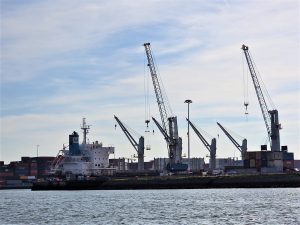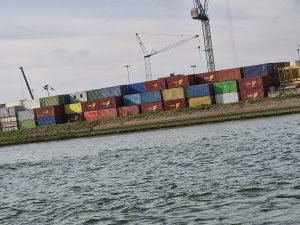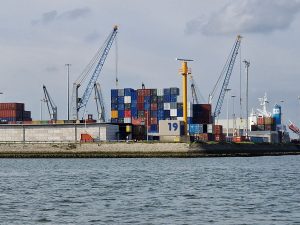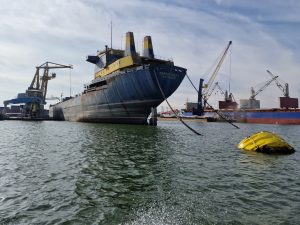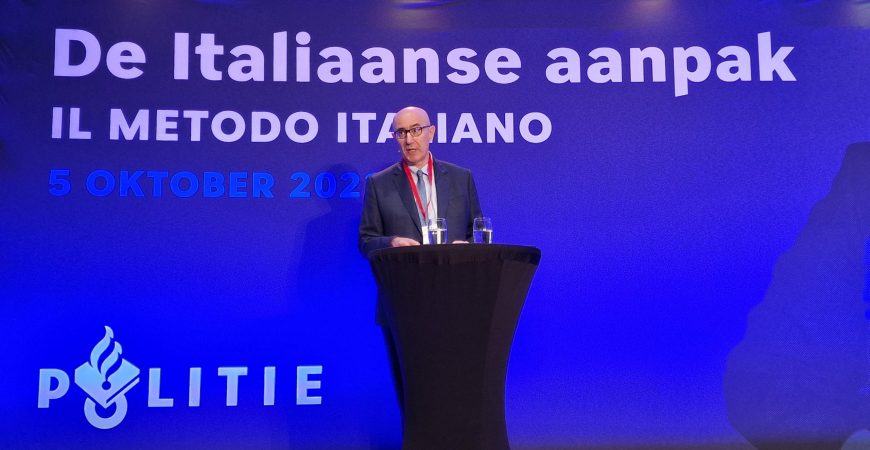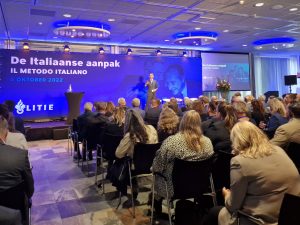
The conference “The Italian Approach” took place in Rotterdam/The Netherlands on 4-5 October. It was attended by Italian and Dutch Authorities and was dedicated to the Italian approach to prevention and fight against mafia-type organised crime, with a particular focus on the infiltration of Italian criminal groups into the economic and infrastructural assets of major strategic importance in the country.
This meeting, which was strongly urged by the Minister of Justice and Security of the Netherlands, Yeṣilgöz-Zegerius, was attended by Italian leading experts in the fight against mafias, who exchanged views with high-level Dutch experts, including officials and staff from the Dutch police, the FIOD (Fiscal Information and Investigation Service), the Judicial Authority and the Ministry of Justice and Security of the Netherlands. The two-day meeting illustrated the historical, regulatory and operational features of Italy’s long-standing experience in the fight against the mafia, with the contribution of blood paid by ‘men of justice’, among whom Judges Falcone and Borsellino with their lesson: working in international cooperation and attacking the mafias’ illicit assets – the well-known ‘follow the money’ principle. Specifically, the following topics were examined in depth, also from a transnational perspective: anti-mafia administrative documentation in preventing and combating organised crime; the fight against organised crime and the double-track system involving law enforcement and asset-related preventive measures; the anti-drug policy developed at national and international level by Italy and the activities related to prevention and fight against criminal organisations. In addition to the instrument of asset prevention measures, the Dutch authorities also required a special discussion on the special prison regime (41 bis) envisaged for mafia detainees, the protection measures envisaged for cooperating witnesses managed by the Department of Public Security through the Central Office for Personal Security and the Central Protection Service (DCPC). The Director of DCSA – Lieutenant General of G. di F. Antonino Maggiore – attended the Symposium, along with the Head of the Operational Service – Brigadier General CC Giancarlo Scafuri.
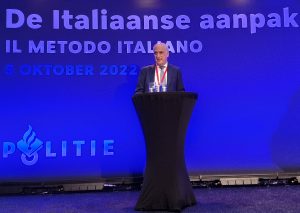
The delegation of the Department of Public Security, headed by the Deputy Chief of Police Vittorio Rizzi, was composed of the heads and officials of the above mentioned Department. In particular, the Director of the Office for Coordination and Planning of the Police Forces, Vittorio Lapolla, focused on anti-mafia documentation for preventing and combating organised crime, measures provided for by the Anti Mafia Code – a special national legislation-; while the Director of the Central Anticrime Directorate of the State Police (DAC) Francesco Messina analysed in depth the Italian double-track system attacking the military structure and the illicit assets of the mafias. In particular, the fight against the Italian mafias is oriented on two levels, to hit both the ‘social’ control that they exercise with military instruments and the economic-financial power derived from the huge profits of criminal activities, ‘which also becomes political power’. Moreover, it was highlighted that camorra, ‘ndrangheta, cosa nostra, Apulian mafia, aside from being well rooted in the territory, have delocalised their activities in other countries and operate worldwide, especially in drug trafficking, with their own affiliates. This is why the joint ventures between the police forces and the Judicial Authorities of different states are increasingly necessary. Afterwards, the Director of the Central Directorate for Antidrug Services Antonino Maggiore gave an insight into the drug policy developed at national and international level through the DCSA, while the Director of the Antimafia Investigation Directorate (DIA) Maurizio Vallone outlined the national anti-money laundering mechanism against mafia criminal organisations.
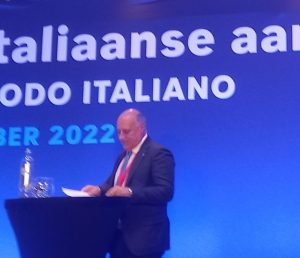
In his speech, the DCSA Director, General Maggiore, initially described the architecture of the Italian anti-drug system, developed on two complementary levels – political and operational – by drug prevention and law enforcement players. On the demand side, the main role is played by the Department for Anti-drug Policies of the Presidency of the Council of Ministers – a coordinating body of the activities of prevention, care, treatment and social and work reintegration of drug addicts – while, in the supply reduction sector, a fundamental function is performed by the Police Forces carrying out anti-drug activities and, in this context, a central role is assigned to the DCSA – a national and international info-investigative coordination body, also providing technical and economic support to the investigations. Director Maggiore outlined the crucial co-ordination action carried out by DCSA in the drug trafficking sector, one of the longest and most successful inter-agency initiatives within the national police forces. In particular, Director Maggiore focused on the network of law enforcement attachés posted abroad at international crossroads of drug production, transit and illicit trafficking. They promote police cooperation against drug trafficking as a priority and carry out study, observation and liaison activities with relevant foreign agencies. In this context, the need to ensure that drug trafficking investigations were always conducted on an international scope in order to disrupt criminal associations in the territories of all states involved was emphasised.
The management and coordination of information flows and the work of the law enforcement attachés are the key elements of international cooperation, reflecting the central role of DCSA in the fight against drug trafficking. Lastly, the establishment of the operational section “Drug@online”, within DCSA, was also mentioned. Such section is in charge of monitoring the Internet, in order to coordinate law enforcement activities against illicit the drug trade carried out by traffickers using the potential offered by the web.
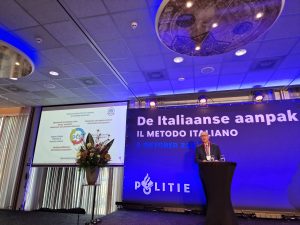
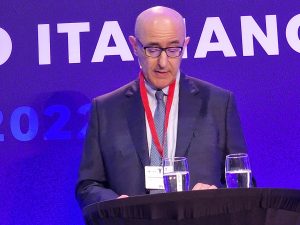
During the two-day event, nine thematic workshops were held, attended by qualified experts from the Italian police forces (DCSA, DCPC, UCIS, DIA, DAC, ROS and SCICO). During such workshops the most significant areas related to preventing and combating criminal organisations and drug trafficking were discussed in depth with Dutch police and judiciary representatives, through technical-operational insights.
The discussions and exchanges developed during these technical working groups focused on the investigation methodologies developed in Italy in the fight against mafias and drug trafficking, on the investigation techniques and the particular tools available and used, on the synergic sharing of information and good practices that results in concrete police and judicial cooperation, a successful weapon for an effective fight against crime.
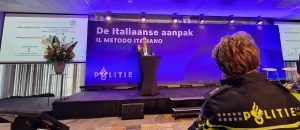 DCSA actively participated in the workshop on “data sharing”, which was repeated twice during the day, with an intervention by the Head of the Operational Service, General Scafuri. Brigadier General G. di F. Giampiero Ianni, Director of the SCIP (International Police Cooperation Service)- DCPC (Central Directorate of Criminal Police) took part in the same working group with the Dutch colleagues. The main topics were the centralisation and specialisation of information flows, which are necessary preconditions for the initiation and development of international police and judicial cooperation in the fight against mafias and drug trafficking.
DCSA actively participated in the workshop on “data sharing”, which was repeated twice during the day, with an intervention by the Head of the Operational Service, General Scafuri. Brigadier General G. di F. Giampiero Ianni, Director of the SCIP (International Police Cooperation Service)- DCPC (Central Directorate of Criminal Police) took part in the same working group with the Dutch colleagues. The main topics were the centralisation and specialisation of information flows, which are necessary preconditions for the initiation and development of international police and judicial cooperation in the fight against mafias and drug trafficking.
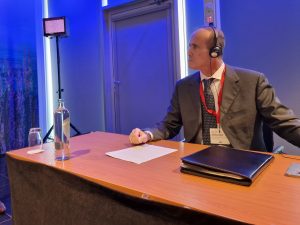
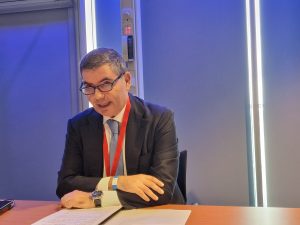
General Scafuri examined in depth the issue “Fight against drug trafficking: the operational coordination methods ”. In his speech he underlined, in particular , the importance and need for the circulation and exchange of operational information among investigators. He provided practical examples of joint investigations, proving the effectiveness of police and judicial information flow sharing, at national and international levels, in the fight against international drug trafficking and mafia-type organized crime involved.
Moreover, he illustrated the unique nature of the Italian system that envisages the investigative coordination of the various national police forces in the anti-drug sector by DCSA. The work of DCSA in this area is fundamental, both at the ”internal” and ”external” level, as it is the only central Italian body that has the task of receiving and sharing all information on drug trafficking, as well as coordinating the police forces cooperating with foreign authorities. In this context, the contribution of the network of law enforcement attachés is also valuable, in particular those from DCSA, located in areas of different continents, that are strategic for the fight against drug trafficking. DCSA, through a constant dialogue and operational exchange with all countries involved, aims to increasingly strengthen cooperation in the fight against drugs.
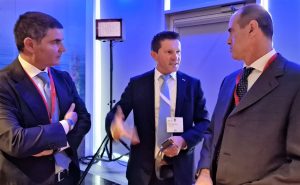
The information ‘exchanged’ – delivered, received and processed – is the necessary input to initiate investigations in one’s own country, to develop joint investigative activities and to organise special operations – controlled deliveries and undercover activities – which, apart from leading to drug seizures, are valuable tools for dismantling the criminal organisations managing the drug trade and the enormous profits derived from it. The issue of tackling mafia assets, the proceeds of illicit trafficking, was in fact another topic covered during the debate. Italy hits such assets with the well-known double-track system established by a dedicated law: preventive and criminal seizures and confiscations. At the same workshop, the Director of the DCPC- SCIP talked about “data sharing at the International Police Cooperation Service”, in which he illustrated the great potential of national information systems in relation to the general exchange of info-investigative news with foreign police forces, which is necessary for international police cooperation in various crime areas. In his context, the effectiveness of the project I – CAN (Interpol Cooperation Against ‘Ndrangheta) was highlighted. Such project was set up by an agreement between the Department of Public Security and Interpol, signed by 11 countries, with the aim of increasing international police cooperation in the fight against the ‘ndrangheta.
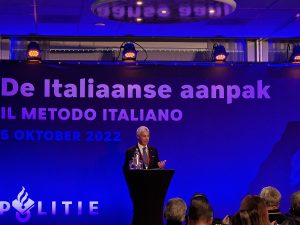
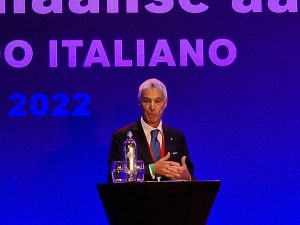
The Deputy Chief of Police, Prefect Vittorio Rizzi took the floor, closing the Italian delegation’s speeches. His intervention was focused on the fight against organized crime and the antimafia method. He stressed the need to increasingly strengthen cooperation and operational collaboration between states, as an indispensable tool to effectively steer preventive and law enforcement action.
In this context, the exchange of different professional skills and experiences between countries is of fundamental importance, as well as the sharing of best practices, in order to develop a unified and successful anti-crime strategy, which in any case protects human rights, those fundamental rights recognised by national and international legal systems in defence of the dignity and equality of all men. Prefect Rizzi concluded that the symposium is an excellent example of how fruitful cooperation between Italy and the Netherlands can be, exactly because it is not limited to discussion and exchange of information on the different criminal and judicial regulatory systems, but is aimed at the dialogue and operational exchange of best practices between the two countries. This is of fundamental importance in the fight against mafias, their illicit trafficking, among which drug trafficking is the most important, and the laundering and re-utilisation of the proceeds of their criminal activities.
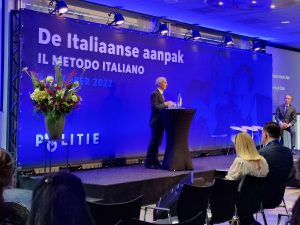
At the end of the conference, the Dutch Minister of Security and Justice expressed her appreciation for the success of the event and for the excellent cooperation between Italy and the Netherlands, and thanked the Italian authorities.
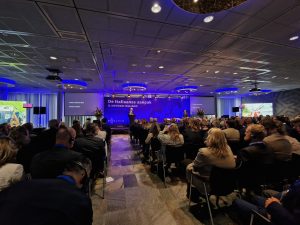

The Minister publicised the eventon social media and posted a message on Linkedin, which is quoted below: “Unfortunately, Italy has extensive experience with the destructive power of organized crime. The mafia has been around for hundreds of years. In the 1970s and 1980s, the mafia believed itself to be untouchable. Increasingly, people from the upper world also had to pay the price, such as judges Giovanni Falcone and Paolo Borsellino. Those murders caused a great social outcry. And then for an acceleration of the mafia approach. A more effective, stricter approach with new instruments, measures and legislation.
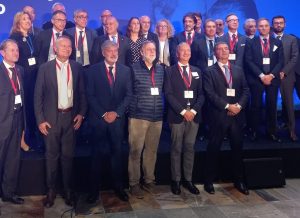 During my visits to Italy, I became even more aware of their approach to serious crime. What struck me most there was the broad scope with which Italians view the problem. We have also made steps in this direction in recent years and we must continue to do so. Specifically, I want to improve the crown witness scheme, confiscate even more criminal assets and focus even more on tackling entire networks and criminal power structures. Not only the leaders, but also the assistants need to be tackled.
During my visits to Italy, I became even more aware of their approach to serious crime. What struck me most there was the broad scope with which Italians view the problem. We have also made steps in this direction in recent years and we must continue to do so. Specifically, I want to improve the crown witness scheme, confiscate even more criminal assets and focus even more on tackling entire networks and criminal power structures. Not only the leaders, but also the assistants need to be tackled.
Today I was at a unique meeting of Italian and Dutch people from the investigation. This symposium in the Netherlands shows how close our ties are with Italy and how well there is cooperation in the investigation. I am incredibly proud of that.”
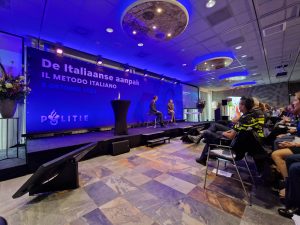
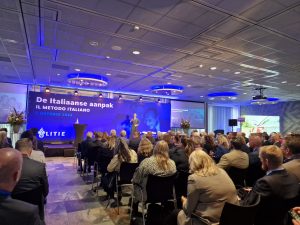
During the two-day meeting, the Italian authorities visited the Rotterdam port facilities and had the opportunity to see closely its extent and complex nature from the point of view of controls and international criminal infiltration.
Indeed, the large size and logistical structure of this port represent a constant challenge for the investigators engaged in the fight against drug trafficking, a challenge in which the constant effort deployed can be more effective only if carried out through international cooperation.
